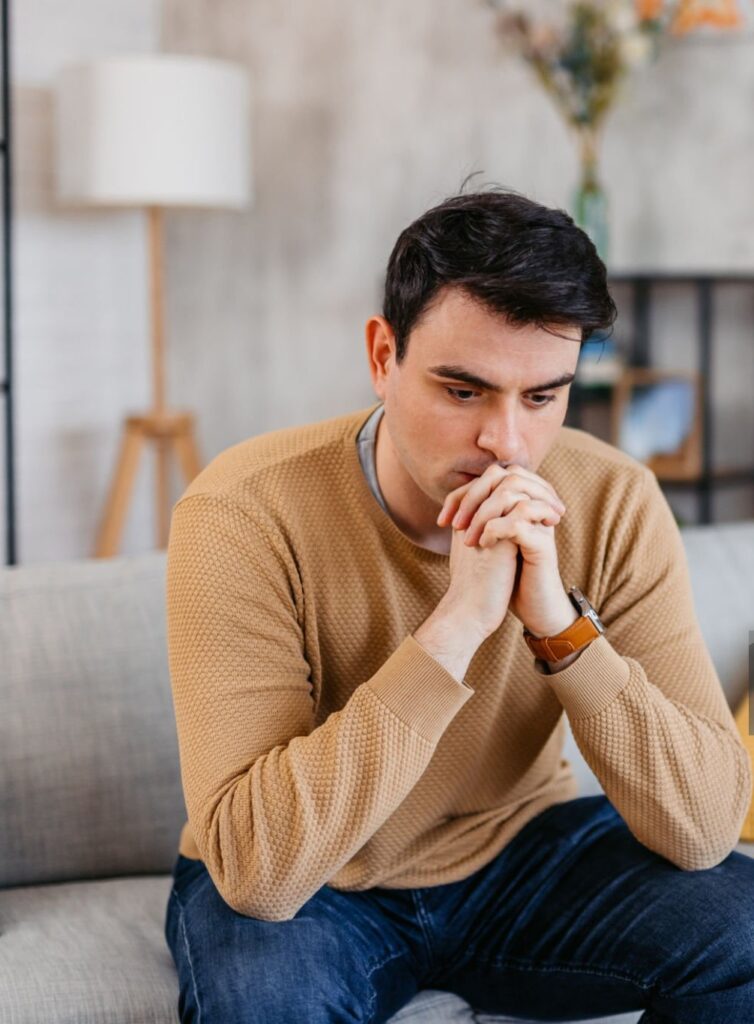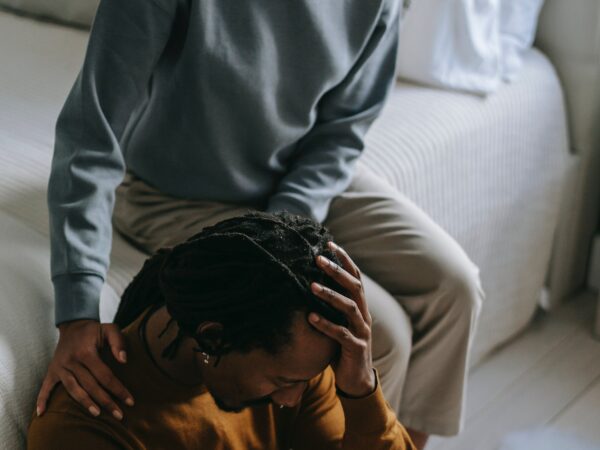Sexual performance anxiety, a prevalent issue impacting both men and women, refers to the intense fear or worry about one’s ability to perform sexually. This anxiety often stems from concerns about satisfying a partner, body image, or past negative experiences, leading to a cycle of stress that can significantly hinder sexual performance and enjoyment. Its impact on sexual health is profound, contributing to problems such as erectile dysfunction in men and reduced arousal in women, thereby affecting overall relationship satisfaction and self-esteem. Research indicates that up to 25% of men and 16% of women experience this form of anxiety, highlighting its commonality and the importance of addressing it for maintaining a healthy sexual life.
Importance of Addressing Sexual Performance Anxiety
Addressing sexual performance anxiety is crucial for both your relationship and your self-esteem. When this anxiety is left unaddressed, it can create a barrier between you and your partner, fostering feelings of frustration and emotional distance. This can erode the trust and intimacy that are essential for a healthy relationship.
Additionally, sexual performance anxiety can significantly impact your self-esteem, leading to feelings of inadequacy and self-doubt. Over time, these negative emotions can compound, resulting in more profound psychological issues such as depression or chronic anxiety.
By acknowledging and addressing these concerns early, you can foster a more fulfilling and confident approach to your sexual health and overall well-being, ensuring long-term happiness and stability in your intimate relationships.

Causes of Sexual Performance Anxiety
Psychological Factors
If you’re experiencing sexual performance anxiety, it’s essential to recognize that various psychological factors might be at play. Stress and anxiety can easily overshadow the enjoyment of intimate moments, creating a barrier between you and your partner.
Past negative sexual experiences can linger in your mind, casting doubts and fears about future encounters. Moreover, the fear of inadequacy or failure can be particularly debilitating, leading to a vicious cycle of self-doubt and avoidance. Understanding these underlying causes is the first step towards overcoming sexual performance anxiety and reclaiming a fulfilling and satisfying sex life.
Physical Factors
Feeling the weight of expectation bearing down on you, it’s no wonder that sexual performance anxiety can rear its head. Physical factors can play a significant role in this unsettling experience. Erectile dysfunction, the silent saboteur of many a bedroom encounter, can cast doubt on your abilities and shake your confidence to its core.
Premature ejaculation, another unwelcome guest, can leave you feeling out of control and inadequate. Even the specter of pain during intercourse can add layers of anxiety, turning what should be a pleasurable experience into a source of dread. These physical challenges can amplify the pressure you feel, making it even more important to address them with understanding and compassion.
Social and Cultural Factors
Navigating the labyrinth of sexual performance anxiety can be daunting, yet understanding its roots can offer illumination. Societal pressures and cultural expectations often cast a shadow over intimacy, weaving a tangled web of standards that one may feel compelled to meet.
The ubiquity of pornography, with its airbrushed perfection and exaggerated portrayals, can distort reality, fostering unrealistic benchmarks that gnaw at confidence. Moreover, communication misfires with partners can fan the flames of insecurity, leaving desires unspoken and vulnerabilities unaddressed. In this complex dance, acknowledging these social and cultural factors is the first step toward untangling the knots of anxiety, paving the path for genuine connection and self-acceptance.
Symptoms and Diagnosis of Sexual Performance Anxiety

Do you ever find yourself caught in the grip of sexual performance anxiety? It’s a common struggle, and the causes can be as diverse as the individuals who experience it. Perhaps it’s the pressure to meet certain expectations, whether they come from society, a partner, or even yourself. This pressure can manifest physically with symptoms like a racing heart, sweaty palms, or even nausea, all signaling the body’s stress response kicking into high gear. Sometimes, it’s easier to avoid sexual activity altogether rather than confront these overwhelming feelings. Negative self-talk and self-doubt can further exacerbate the situation, creating a cycle that’s difficult to break. But remember, you’re not alone in this struggle, and there are ways to address and overcome sexual performance anxiety with patience, understanding, and perhaps professional support if needed.
Strategies for Overcoming Sexual Performance Anxiety
Communication with Partner
When facing sexual performance anxiety, communication with your partner is paramount. Open and honest discussions about your concerns and fears can alleviate the pressure you feel and strengthen your bond. Initiating this conversation may seem daunting, but starting with a safe and supportive environment can make all the difference.
Choose a time when you both are relaxed and free from distractions and express your feelings with compassion and vulnerability. Remember, your partner is likely to appreciate your honesty and willingness to address the issue together. Together, you can explore strategies to overcome sexual performance anxiety and enhance intimacy in your relationship.
Lifestyle Changes
If you’re having problem with sexual performance anxiety, implementing a few key strategies can make a world of difference. Start by prioritizing lifestyle changes that promote overall well-being. This includes maintaining a healthy diet and incorporating regular exercise into your routine. Cutting back on alcohol and drug use can also help alleviate anxiety and enhance sexual confidence.
Additionally, exploring stress management techniques such as yoga and meditation can provide a sense of calm and centeredness, allowing you to focus on the present moment and enjoy intimacy without the weight of performance pressure. Remember, addressing sexual performance anxiety is a journey, so be patient with yourself and celebrate each step forward towards greater sexual fulfillment and confidence.
Psychological Approaches
If you find yourself grappling with sexual performance anxiety, remember, you’re not alone. It’s a common hurdle that many individuals face at some point in their lives. To conquer this challenge, consider employing various strategies tailored to your needs.
Dive into psychological approaches like cognitive-behavioral therapy (CBT), which can help unravel the negative thought patterns fueling your anxiety. Embrace mindfulness and relaxation techniques to ground yourself in the present moment and alleviate tension.
Shower yourself with positive affirmations and practice self-compassion, acknowledging that it’s okay to feel vulnerable and that you’re worthy of pleasure and satisfaction. By combining these methods, you can gradually reclaim confidence and intimacy, paving the way for a more fulfilling sexual experience.
Building Sexual Confidence
Improving Body Image
Building sexual confidence involves a journey of self-discovery and acceptance, especially when faced with the challenges of overcoming sexual performance anxiety. Your body image plays a significant role in this process, influencing not only how you perceive yourself but also how you perform sexually. Embracing strategies for improving body image is key, fostering a mindset of self-love and acceptance.
Practice gratitude for your body’s abilities and uniqueness, focusing on what it can do rather than how it looks. Engage in activities that promote body positivity, such as mindfulness exercises, affirmations, or surrounding yourself with supportive and affirming individuals. Recognize the impact of body image on sexual performance—it’s not about meeting unrealistic standards but about feeling comfortable and confident in your own skin.
Enhancing Sexual Skills
Building sexual confidence starts with enhancing your sexual skills. Seek out sex education resources—books, online courses, or even therapy—to deepen your understanding of your body and pleasure. Don’t hesitate to explore your fantasies and preferences in a safe, consensual space.
Understanding what turns you on can alleviate anxiety and boost confidence. Remember, practice and experience are key. Take things at your own pace, communicate openly with your partner, and embrace the journey of discovering what brings you both pleasure. With time and patience, you’ll find yourself gaining the confidence to navigate the realms of intimacy with ease and joy.
Creating a Supportive Environment
Building sexual confidence starts with creating a supportive environment where you feel safe and valued. Take the time to set the mood and create a comfortable space that encourages relaxation and openness. Remember, it’s not just about the physical act but also about the emotional connection.
Prioritize foreplay and take things slow, allowing both partners to fully immerse themselves in the experience. Trust is paramount in overcoming sexual performance anxiety, so communicate openly with your partner and build emotional intimacy. Together, you can explore and discover what brings pleasure and fulfillment, fostering a deeper connection and boosting your sexual confidence.

Conclusion
We’ve delved into the myriad causes and symptoms of this common issue, offering strategies to combat it head-on. Throughout, there’s been a resounding emphasis on the importance of seeking help and fostering open communication with partners. Remember, you’re not alone in this journey; countless individuals grapple with similar challenges, and there is light at the end of the tunnel.
Seeking help is not a sign of weakness but a courageous step towards reclaiming control over your sexual well-being. You deserve to experience intimacy without the weight of anxiety holding you back. Take that first step towards liberation by reaching out to a professional or confiding in a trusted loved one. Together, we can conquer sexual performance anxiety and pave the way for fulfilling and satisfying experiences.
